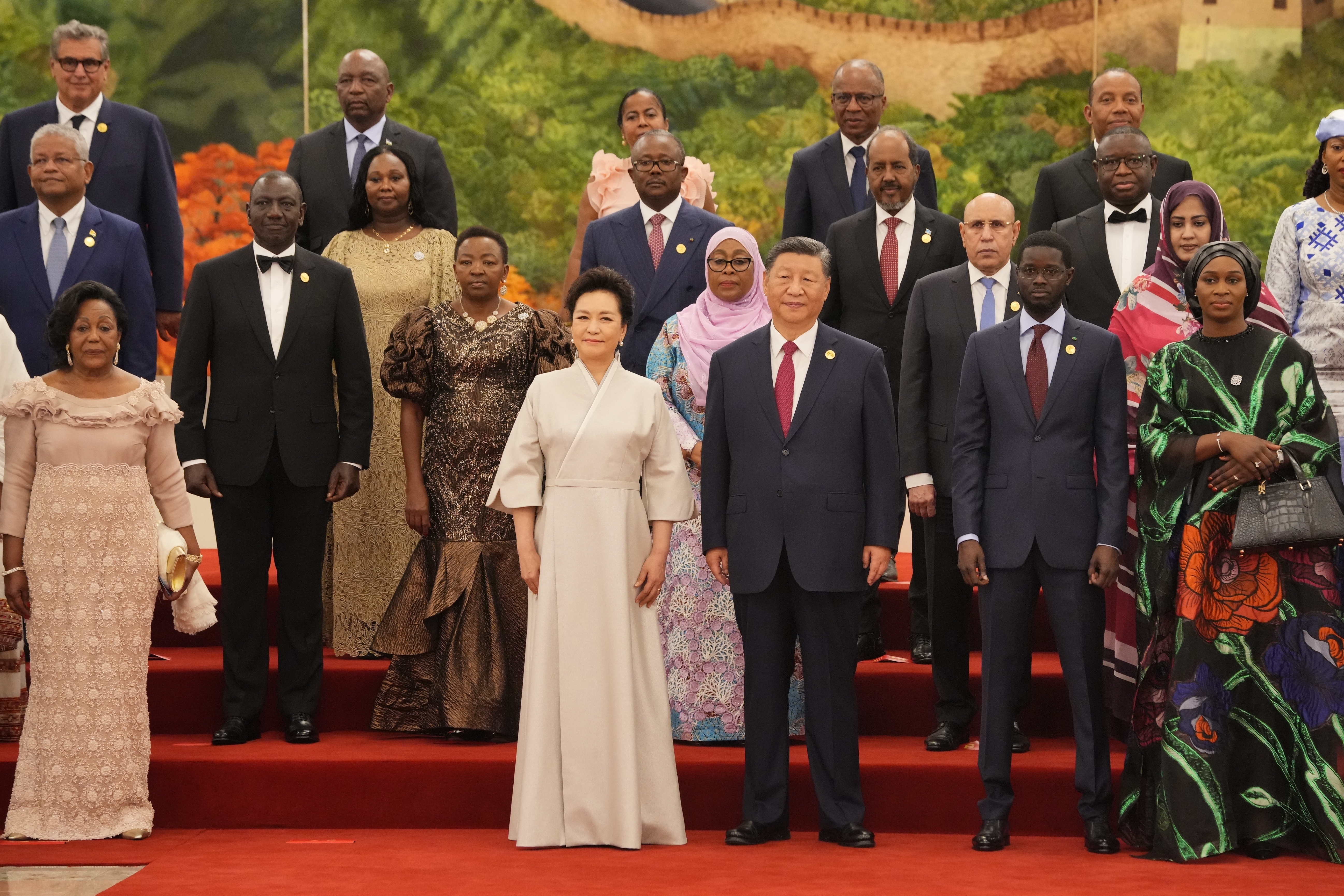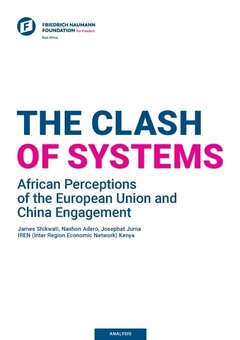CHINA-AFRICA
Competition between systems - China's role in Africa and why Europe must react now

China's President Xi Jinping, center, and his wife Peng Liyuan stand with leaders from African nations for a group photo ahead of the dinner reception of the 2024 Summit of the Forum on China-Africa Cooperation
/ picture alliance / ASSOCIATED PRESS | Ken Ishii
China is bringing out the big guns in honour of its African guests. President Xi Jinping personally opens the ninth China-Africa Cooperation Forum in Beijing on 5 September with a festive ceremony. But that's not all; in the evening he invites the African guests to a banquet. Africa is a priority for us, as these gestures are intended to convey.
The leadership in Beijing obviously senses the need to woo its African partners. After years of expansion in Africa, China's involvement is currently at a critical point. Many economies in Africa are still struggling with the consequences of the Covid-19 pandemic, and there is growing discontent in more and more countries about high prices and a lack of jobs. Many see a major cause of the crisis in the high levels of debt that African countries have accumulated in recent years - often for large infrastructure projects and financed by Chinese companies and banks. Precisely because the contracts with Beijing are not transparent, unconfirmed information is circulating about high interest rates and one-sided conditions in China's favour. The mixture of facts critical of China and emotions threatens Beijing's successes in Africa over the past twenty years.
Since the early 2000s at the latest, China has positioned itself as an important partner and investor in Africa. In terms of infrastructure projects and the mining and trading of raw materials, China has replaced Europe as the most important partner on the continent. Europe did not take note of this development for a long time, and to this day there is still no harmonised European trade, investment and development policy that responds appropriately to the Chinese triumph in Africa.
Just how successful China is in Africa is impressively demonstrated by the presentation of the most important importing countries for African states.

In order to better understand China's success in Africa, the Global Partnership Hub of the Friedrich Naumann Foundation in Nairobi surveyed more than 1,600 African decision-makers. The results of the online survey conducted by the Kenyan think tank IREN (Inter Region Economic Network) are summarised in the study ‘The Clash of Systems - African Perception of the European Union and China Engagement’.
According to the study, China's success in Africa can be explained primarily by four strategic advantages of the Chinese: China is faster in making decisions, faster in implementing projects, it interferes less in the internal affairs of African partners and it has fewer scruples about corruption.
In contrast, the criteria in which Europeans score better are obviously less important: for example, the quality of European products and services, transparency in contracts, job creation for Africans or good working conditions and high environmental standards.
Now that some Africans are critically scrutinising China's role on their continent, there is an opportunity to learn from these findings. Europe must become faster in deciding on projects and implementing them. This is not easy with 27 EU member states. Europe needs large units - companies and banks - with lean structures and short decision-making paths to be able to compete with the centrally controlled state-owned enterprises from China. This is a challenge for industrial policy.
We must also take seriously the impression of many Africans that Europe is interfering too much in their internal affairs. There is more to this than the scepticism that still exists towards the former colonial powers. The feeling of being patronised and inappropriately lectured by Europe is not least an effect of what we call value-based foreign and development policy. As right as it is to take appropriate account of social concerns, environmental aspects or equal rights for women in projects, we should be just as sensitive about how we address these issues in Africa. ‘If you talk to the Chinese, you get a road, if you talk to the Europeans, you get a lecture’ is a widespread perception in Africa that plays into the hands of Chinese competitors. If Europe does not come into its own as a cooperation partner because we are too demonstrative about our values, we are not only harming ourselves, but also missing the opportunity to make a difference in the spirit of these values.
Europe currently has the chance to make up for lost ground in Africa. To capitalise on this, we need a European Africa strategy that enables rapid results and is sensitive to the perspective of our partners. Ceremonies and state banquets will not be enough.
This article first appeared in the Tagesspiegel on 4 September 2024. Stefan Schott is the Project Director for FNF East Africa & Head of Global Partnership Hub.

